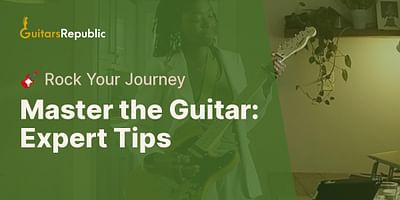Emily 'Strummer' Stevens is a professional guitarist and music teacher. She specializes in acoustic guitar and has a deep love for folk and indie music. Emily has a knack for breaking down complex guitar techniques into easy-to-understand lessons, making her articles a favorite among beginners.
Hey there! As a beginner guitarist, you might be wondering what pedals you should invest in to enhance your sound and take your playing to the next level. Well, I've got you covered! Let's dive into the essential pedals for beginner guitarists.
1. Tuner Pedal: A tuner pedal is an absolute must-have for any guitarist. It helps you keep your guitar in tune, ensuring that you sound your best. With a tuner pedal, you can quickly and accurately tune your guitar on the fly, whether you're practicing or performing.
2. Overdrive/Distortion Pedal: If you want to add some grit and crunch to your sound, an overdrive or distortion pedal is essential. These pedals allow you to achieve that classic rock or bluesy tone that we all love. Start with a versatile pedal that can produce a range of tones, from mild overdrive to heavier distortion.
3. Delay Pedal: A delay pedal adds depth and dimension to your playing by creating echoes of your guitar sound. It's perfect for creating atmospheric and ambient sounds, as well as adding a touch of professionalism to your solos. Experiment with different delay settings to find your unique sound.
4. Reverb Pedal: Reverb pedals simulate the natural reverberation of different spaces, such as concert halls or small rooms. They add a sense of space and depth to your sound, making it more immersive and captivating. Whether you're playing clean or with distortion, a reverb pedal can take your tone to new heights.
5. Chorus Pedal: A chorus pedal adds richness and warmth to your sound by creating multiple voices from your guitar signal. It's great for achieving a shimmering, dreamy sound, especially in clean or arpeggiated passages. A chorus pedal can make your guitar sound bigger and more expansive.
6. Looper Pedal: A looper pedal is an excellent tool for practicing and improvising. It allows you to record and layer different guitar parts, creating your own backing tracks. This pedal is perfect for honing your timing, experimenting with different chord progressions, and developing your improvisational skills.
Remember, these are just the essentials to get you started. As you progress and explore different genres and styles, you may want to add more pedals to your collection. But for now, these pedals will give you a solid foundation to work with.
Lastly, I want to emphasize that while pedals can enhance your sound, they're not a substitute for practice and technique. So, keep practicing, experimenting, and most importantly, have fun with your pedals! And if you want to learn more about guitars, techniques, and gear, be sure to check out Guitars Republic for more insightful articles, tips, and guides.
Rock on and happy playing!















